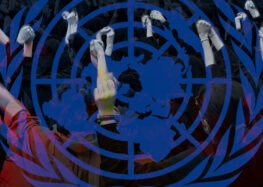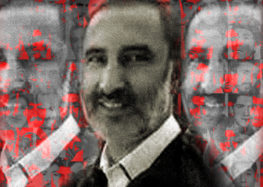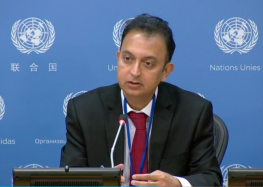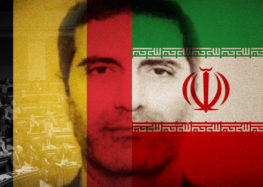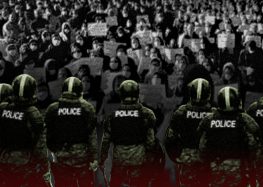Legal Expert Says Sweden Has Authority to Prosecute Iranian Man Connected with 1988 Mass Executions
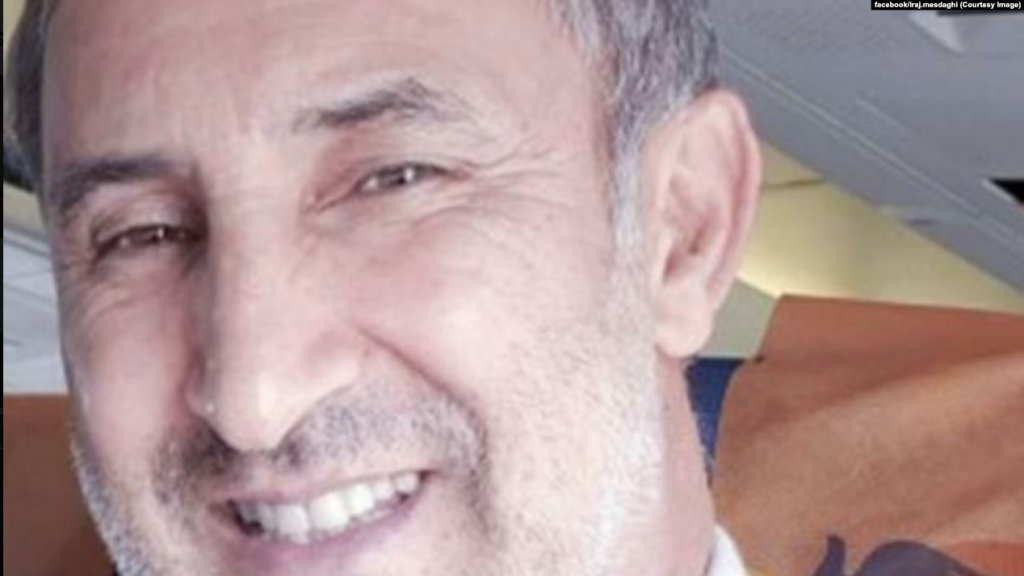 Hamid Nouri, in Swedish Custody, Linked to Death Commissions that Ordered the Extrajudicial Killing of Thousands of Prisoners
Hamid Nouri, in Swedish Custody, Linked to Death Commissions that Ordered the Extrajudicial Killing of Thousands of Prisoners
Legal experts weighing in on the arrest in Sweden on November 9 of Hamid Nouri (also spelled Noury), who allegedly participated in the 1988 extrajudicial mass killings of prisoners in Iran, note that Swedish courts have the authority to investigate and prosecute individuals accused of crimes against humanity in other countries.
“According to International law, Sweden has a responsibility to prosecute crimes against humanity in their national courts,” human rights expert Payam Akhavan, a professor of international law and human rights at McGill University in Canada, told the Center for Human Rights in Iran on November 14, 2019.
The executions of some 4000-5000 prisoners in 1988, who had all been issued prison sentences and were serving their terms, have been internationally recognized as crimes against humanity. The executions were ordered by inquisition-like “death commissions” set up after the Iran-Iraq war (1980-1988) by a fatwa (ruling) issued by Islamic Republic founder and then supreme leader Ayatollah Ruhollah Khomeini. Many of the victims were supporters of the Mojahedin-e Khalgh (MEK) opposition group, but communists, members of Fadaian-e Khalgh, and other groups were also targeted. The prisoners were secretly killed in mass hangings throughout the country and dumped into mass graves.
Nouri was arrested in Stockholm on November 9 as he arrived at Arlanda Airport in Sweden to visit relatives. He is currently in Swedish custody, held by a court order on November 13, pending a prosecutor’s decision on whether to press charges by December 11.
“The fact that the Swedish court extended Nouri’s detention for a month is quite a complicated matter because now the prosecutor has to look for documents and evidence,” Akhavan said. “The detention period can be extended if more time is needed to find more documents,” the professor of international law added.
He continued, “To prosecute someone for crimes against humanity is not easy. You need proof and evidence. In this short amount of time it’s very important for us to gather enough evidence to convince the court to try this person.”
US-based human rights activist Iraj Mesdaghi, who was a political prisoner in Iran from 1981 to 1991, described Nouri as “one of the highest-level suspects in connection with the 1988 massacre within the European legal jurisdiction.”
“During many years of investigation, I discovered through my contacts inside Iran that Nouri had traveled to Europe many times,” Mesdaghi told CHRI on November 10. “A case was built against him in Sweden and as soon as he arrived, he was arrested by a prosecutor’s order. In Sweden, they don’t arrest anyone for no reason. You need sufficient cause.”
“Like all criminals, he’s denying the charges and claims that it’s a case of mistaken identity. But there’s enough evidence against him and he’s not going to get away so easily.”
According to Mesdaghi, in 1988 Nouri was a deputy prosecutor who worked along with Mohammad Moghisseh, currently a Revolutionary Court judge, in selecting which prisoners should be marked for potential execution.
“They knew the prisoners and therefore they were in charge of selecting and prioritizing which ones would have to appear in front of the Death Commission. Also, they would do their best to convince the Commission to issue death sentences.
“They would be present during the executions, along with Revolutionary Guards and other officials. They were witnesses and directly participated in the executions. Then [Nouri] would celebrate by distributing pastries and cake in the prison hallways.
“I saw him with the ‘Death Commission’ members in Evin Prison as well as Gohardasht (Rajaee Shahr) Prison. I saw him in the prison corridors. Many prisoners saw him and know him. We can bring a hundred witnesses to testify. I mentioned his real name and pseudonym (Hamid Abbasi) in my books, which were published 15 years ago, as one of the people who actively collaborated with the 1988 Death Commission,” Mesdaghi said.
Tehran’s Death Commission was comprised of Ebrahim Raisi, then deputy prosecutor of Tehran and now the current Head of Iran’s Judiciary Chief; Mostafa Pourmohammadi, an intelligence ministry representative at the time and minister of justice during President Hassan Rouhani’s first term (2013-2017); Morteza Eshraghi, Tehran Prosecutor at the time, and Hossein Ali Nayeri, then the religious judge at Evin Prison and now a high court judge.
In later years, Nouri joined the Intelligence Ministry and was an associate of Raisi and Pourmohammadi, according to Mesdaghi.
“We are only in the beginning of a long road but it gives up hope that criminals are not going be safe anywhere. We will catch them one day to face justice. This is the first case in Iranian history but it certainly won’t be the last,” Mesdaghi said.
The 1988 executions are not a closed chapter, reflecting events of decades ago. These crimes are in fact ongoing, as detailed in a report by Amnesty International. The thousands of families of those who were killed are still not allowed to conduct mourning rituals or commemorations, and they continue to be harassed, threatened and attacked whenever they have tried to seek justice or even information about their loved ones’ fate, remains or burial sites.
Read this article in Persian.

